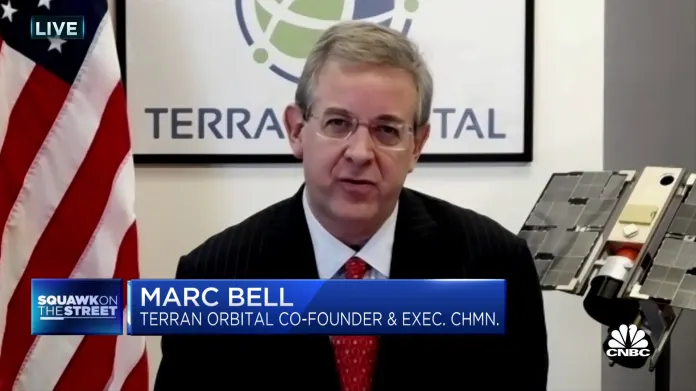KEY POINTS
- Spacecraft manufacturer Terran Orbital began trading on the New York Stock Exchange on Monday after closing its SPAC merger.
- Terran trades under the ticker LLAP, a reference to the Star Trek saying “live long and prosper.”
- The company has contracts to build satellites for customers including NASA and the Pentagon, with its revenue backlog growing from $68 million last year to more than $200 million currently.
Spacecraft manufacturer Terran Orbital began trading on the New York Stock Exchange on Monday after closing its SPAC merger, going public with over $200 million in outstanding orders.
Terran trades under the ticker LLAP — a reference to the Star Trek saying “live long and prosper” – with shares previously listed under the special purpose acquisition company Tailwind Two Acquisition Corp.
Shares of Terran swung in its trading debut: The stock rose as much as 15% at the open, before falling as much as 19%, and then changing direction again to finish the day up 7.6% at $11.80 a share.
Terran joins a trend of space companies going public through SPAC deals, such as Virgin Galactic, Astra, Rocket Lab, Planet and more. But Terran co-founder and CEO Marc Bell told CNBC that he believes his company’s foundation sets it apart.
“We look at a lot of these space SPACs that have gone out and a lot of them weren’t businesses that should have gone public,” Bell said. “We, on the other hand, have real revenues, real pipeline, real backlog, real customers.”
Closing its merger nets Terran with $255 million in gross proceeds, with $29.4 million from Tailwind Two as well as a $50.8 million PIPE round — or private investment in public equity — which included investors AE Industrial Partners, Beach Point Capital and Lockheed Martin. The remaining capital came from $175.3 million in debt financing through Francisco Partners, Beach Point Capital and Lockheed Martin.
“We’re using that money to expand — basically hiring and training of new people and adding new facilities,” Bell said.
Terran booked $25 million in revenue in 2020, which grew to more than $40 million last year. The company has contracts to build dozens of satellites for customers including NASA and the Pentagon, with its revenue backlog growing from $68 million last year to more than $200 million currently.
Headquartered in Boca Raton, Florida, the company has announced plans to expand its satellite manufacturing capability by building a 660,000 square-foot facility near Cape Canaveral and leasing a 60,000 square-foot facility in Irvine, California. With more than 300 employees, the company is building off its consolidation of two former subsidiaries, satellite manufacturer Tyvak and imagery specialist PredaSAR.
“Our manufacturing business is unique, because it’s truly a recurring revenue business,” Bell said. “For the U.S. government, it’s far cheaper for them to build a constellation of satellites and keep refreshing it, and keep refreshing it with current technology, then build one ‘juicy target’ in space.”
Terran is both building spacecraft for other customers and working on its own system of 96 Earth imagery satellites, which Bell described as “Earth observation 3.0.” The satellites would combine two types of imagery collection technology, optical and synthetic aperture radar, Bell said, so that Terran can “overlay the data” and provide more in-depth analysis to customers.

